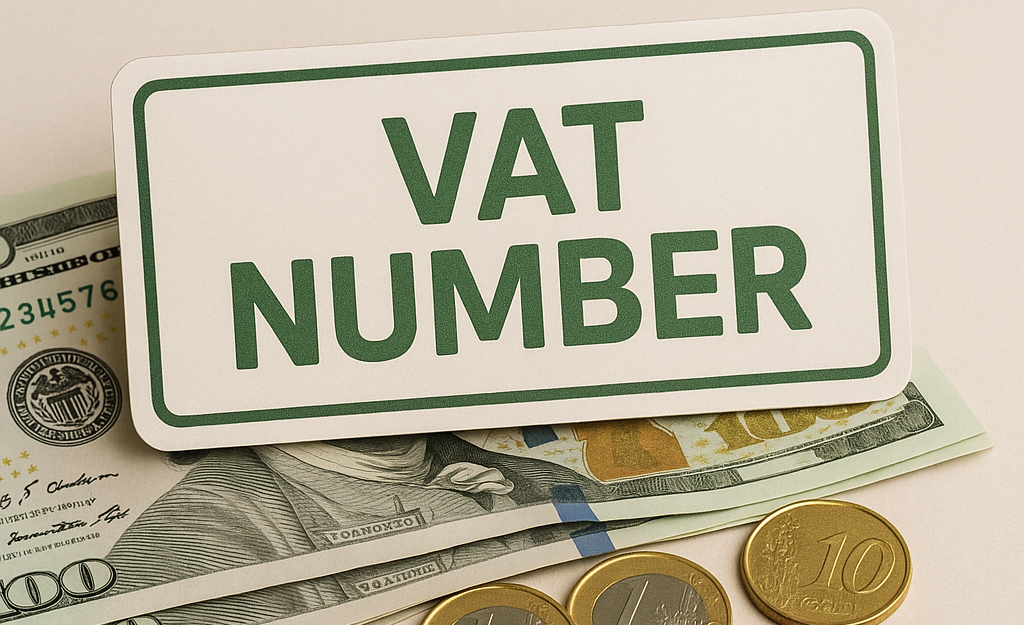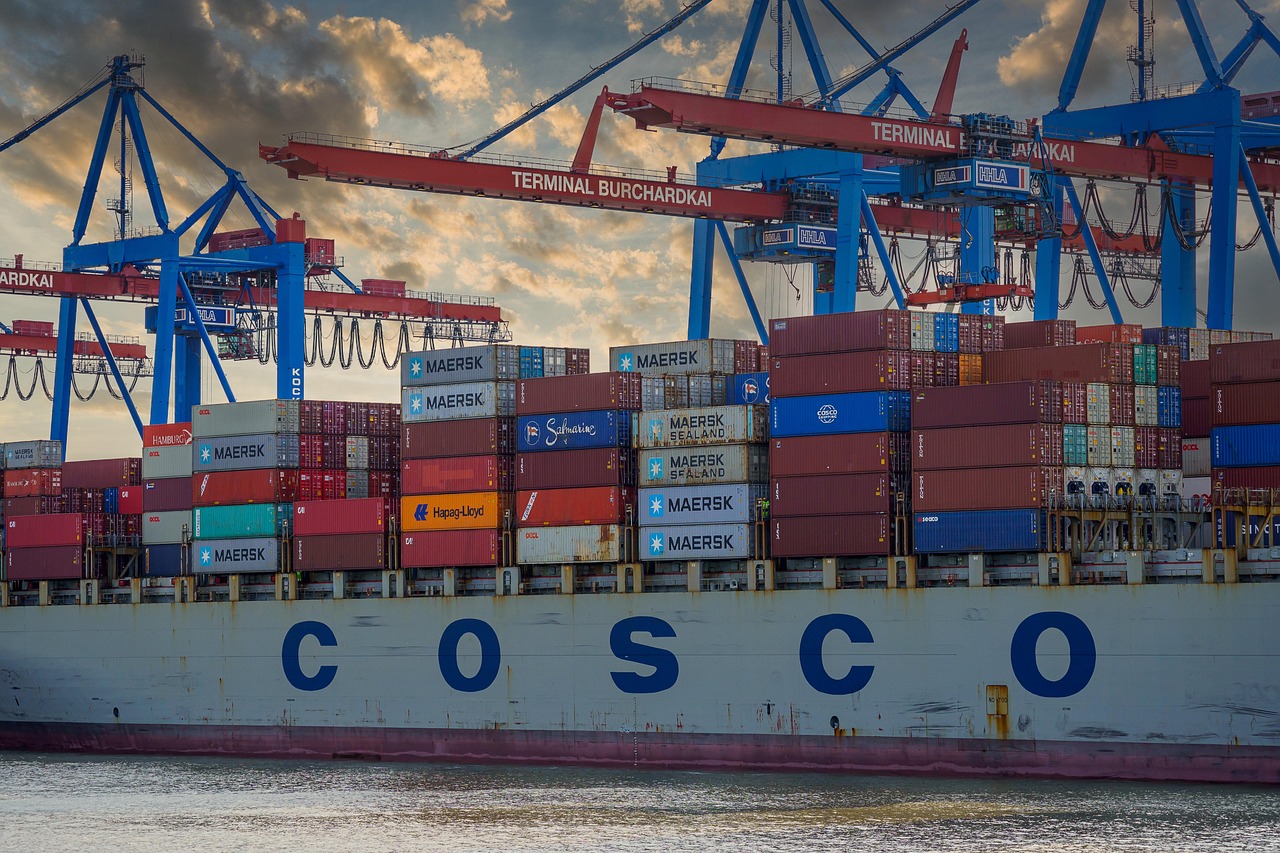Today, more and more Ukrainian entrepreneurs are striving to open a company for international trade, to enter international markets, attract foreign partners, expand production and promote their brand outside of Ukraine. International trade opens up opportunities for profit growth, procurement optimization, and access to stable foreign exchange earnings.
A successful international trade company allows you to:
- buy goods at the best prices;
- sell products in the most promising markets;
- build a flexible financial model using several currencies.
What does it mean to open a company for international trade? For example, if you sell coffee and coffee shop equipment in Ukraine, it will be most profitable to buy coffee beans in Ethiopia and equipment directly from the manufacturer in Germany. You may need to have invoices in euros and US dollars to pay your suppliers. How can you build a business to work with different currencies, countries, and partners as efficiently as possible?
Creating a company for international trade requires careful preparation: a deep understanding of markets, legal requirements, and a clear development strategy.
Lawyers of the international company Maira Consult have prepared step-by-step instructions that will help you successfully open a company for international trade and enter the global market.
Step 1: Market Research

Before setting up a foreign company for international trade, define your own strategy and assess market opportunities. So, how do you open a company for international trade?
Define a business idea
- What to sell? Choose goods or services (for example, supplying electronics from China or exporting Ukrainian organic cosmetics to European countries).
- Decide whether the main activity will be import, export, or a combination of both.
Trends of 2025: According to the European Commission, by the end of 2025, the EU will see an increase in demand for environmental products (+15% compared to 2024), health products (vitamins, dietary supplements), and innovative technologies (smart devices). For example, exports of organic products from Ukraine to Germany and France grew by 12% in 2024, and this trend is continuing."
Analyze the market
- Study supply and demand in target markets.
- Study your competitors: who is already working in your niche, what are their strengths and weaknesses.
- Find potential partners through online platforms, professional exhibitions, and trade missions.
- Research product certification and licensing requirements in partner countries.
Study legal and financial aspects
- Study tax conditions: the possibility of benefits, the need to register a VAT number, the conditions of submission of financial statements and audit
- Investigate the possibility of obtaining tax residence certificate in the country of registration of the foreign company
- Check the availability of opening bank accounts or using payment systems in the chosen jurisdiction.
Plan your logistics
- Determine the best delivery methods: sea transportation, aviation, rail or road transport.
- Prepare for customs clearance: prepare invoices, certificates of origin, packing lists, and shipping documents.
Develop a marketing strategy
- Create a professional website and business pages on social media.
- Consider global trends of 2025: demand for eco-friendly products, health products, and innovative solutions.
Important: the choice of country for registering a company and opening a company for international trade depends not only on tax conditions, but also on the specifics of the market. For example, if a company is registered in the UAE, you need to take into account the peculiarities of local business etiquette, seasonal holidays (Ramadan), and the working hours of banks and government agencies.
Step 2: The main stages of registering a trading company
Once you have answered the questions and decided on the country of registration of a foreign company, you should proceed to the official registration of the business. For opening a company for international trade Ukrainian entrepreneurs often choose jurisdictions such as the UK, Hong Kong, Cyprus, Poland, and Lithuania because of favorable business conditions, simple registration, and favorable taxation.
Select a company form
The choice of the legal form of the company depends on the country of registration, type of business, tax requirements, and your goals. As a rule, for a trading company, the most commonly chosen are:
- England: Private Limited Company (LTD)
- Hong Kong: Private Company Limited by Shares
- Cyprus: Private Limited Company
- Poland: Spółka z ograniczoną odpowiedzialnością (Sp. z o.o.)
- Lithuania: Uždaroji akcinė bendrovė (UAB)
Prepare the necessary information and documents
- Come up with a unique company name. In many countries, it is possible to check the company name online for availability of its use before registering a company: Companies House for England, CR for Hong Kong.
- Determine the founders and directors. Before registering a company for international trading, you should check the requirements of local law regarding the citizenship or residency of the director. For example, in Switzerland, a local director is required. In Poland, if the director and the sole founder are the same person, you need to pay monthly social security contributions of about 310 EUR.
- Select a legal address with access to correspondence.
Common mistake: Our client independently registered a company in England using an online company registration service. A year later, the client was unable to submit financial statements because he did not have a UTR number (company tax number). After registering an English company, the UK tax authority HMRC sends a letter with a tax number to the registration address. As it turned out, the client had chosen a legal address that did not provide for the option of receiving correspondence at all, even for an additional fee. As a result, the client transferred the company to our service, and after changing the legal address, we re-submitted a request for a UTR number to HMRC.
Tip: Choose addresses with the option to receive correspondence.
Register a company for international trade
- Prepare draft constituent documents (articles of association, shareholders' agreement, decision to establish the company, registration forms, etc.)
- Register the company through the state register or a notary. Online: England (Companies House), Hong Kong (Companies Registry), Lithuania (Register of Legal Entities). Through a notary: Poland, Cyprus, Switzerland
- Pay the share capital (if there is a payment requirement).
For example, when registering a UAB company in Lithuania, you need to pay a minimum capital of 2500 EUR, and to register an LTD company in England, you do not need to pay the authorized capital. To pay the authorized capital, a separate bank account is usually opened in the name of the company. As soon as the company is registered, the amount of the paid-in capital is transferred from the temporary account to the current account.
Pay attention!To register a company in Switzerland in the form of a GmbH, you must immediately pay a share capital of CHF 20,000. These funds are transferred to a special account in a Swiss bank, and only then can the company be registered. Opening such a temporary account is a separate procedure, which often requires the participation of local consultants or lawyers. Swiss banks may impose additional requirements on the founders and sources of funds.
Obtain a tax number (TIN - Tax Identification Number)
A tax number is the main identifier of a company in the tax system of the chosen country. It is necessary for:
- registering a company as a taxpayer;
- submitting monthly, quarterly or annual reports;
- paying income tax, VAT, social contributions, etc.
The specifics of obtaining a tax number depend on the country of registration of the company. In the UK, the tax number (UTR) is sent by HMRC to the legal address after registration. In Estonia, the company's tax number is the company's registration number, as well as in Ukraine.
Register a company as a VAT payer
VAT number is the registration number of a value added tax payer. This number is required if your company:
- carries out transactions within the EU;
- plans to export/import goods;
- exceeds a certain turnover threshold (set by each country).
Benefits of VAT registration
- The ability to work with other VAT payers at no additional cost;
- Refund of input VAT;
- Legal import and export within the EU.
How to get a VAT number in 2025?

Opening a company for international trade involves obtaining a VAT number. To get a VAT number, you need to apply to the tax service of the country in which you operate, provide documents about the company's activities, contracts, invoices, etc.
In some countries, there are thresholds that require a company to register as a VAT payer. For example, in Romania, this threshold is 300,000 Romanian lei per year. If a company exceeds this limit, it must register as a VAT payer. In Germany, the threshold for mandatory registration as a VAT payer is 22,000 euros of income per year. In the UK, the threshold for registration as a VAT payer is 90,000 pounds sterling per year.
Lowest VAT rates:
- Switzerland - 8.1%. One of the lowest rates in Europe. All companies in Switzerland are required to register as VAT payers if their income exceeds CHF 100,000 per year.
- UAE (United Arab Emirates) - 5%. A very low rate introduced recently. Businesses with revenues of more than AED 375,000 per year are required to register as VAT payers.
- Bahrain, Saudi Arabia, Qatar - 5-10%. Low rates in the Gulf countries (GCC).
Highest VAT rates:
- Hungary - 27%. The highest standard VAT rate in the European Union. However, reduced rates apply for some goods.
- Croatia - 25%. One of the highest rates in the EU after Hungary. Reduced rates apply to food and medicines.
- Denmark, Sweden, Norway - 25%. High VAT rates in the Scandinavian countries, but with a developed system of benefits and social security.
- Estonia - 22%. From the 01st of July 202 will increase to 24%.
Even if you already have a trading company with a VAT number in one EU country, this does not always mean that you can freely make deliveries throughout the European Union.If the place of delivery is in another country, you may need an additional VAT registration in that country. The peculiarities of working with VAT should be taken into account before choosing a country to open a company for international trade.
For example: A company is registered in Poland with a Polish VAT, the company's goods are stored in a warehouse in Germany, and from there they are sent to customers. In this case, the place of delivery is Germany, so you also need to get a VAT number in Germany.
Get an EORI number (Economic Operators Registration and Identification)
EORI is an identification number used for customs clearance of goods in the EU. Without an EORI, a company cannot carry out customs clearance.
Why do you need an EORI:
- To work with EU customs authorities;
- To submit customs declarations;
- To cooperate with logistics companies.
EORI is provided by the customs authorities of the country where the company is registered. The procedure usually takes from 1 to 10 days.
Step 3: Opening a bank account

No company can engage in international trade and make payments to suppliers or customers without an open account in a bank or payment system. That is why the stage of opening an account for a foreign company is critical for the start of a new company.
What entrepreneurs should consider when opening an account for a trading company:
- Choose banks that have experience working with non-residents;
- Prepare documents in advance confirming the company's real activities (contracts, invoices, website, business plan, etc.);
- Consider opening an account in an electronic payment system (EMI) as an alternative to a classic bank.
Imagine the situation: the company has already been registered abroad, contracts with suppliers have been signed, but a bank account has not yet been opened. Every year, the process of opening accounts for non-residents in foreign banks becomes more complicated and can take several weeks or even months. This delays the launch of a trading company's activities and can cost the loss of clients or profitable contracts.
A case study: Our client, a Ukrainian entrepreneur, was exporting seasonal honey from Ukraine to EU countries, in particular to France and Lithuania. To optimize trade and meet the requirements of his European partners, he decided to set up a foreign company. We advised him to register a company in Lithuania (UAB), as this jurisdiction offers fast registration, access to the European market, and relatively low administration costs. The honey harvesting season was in full swing, and the client had a limited time to ship the first batch of goods to maintain its quality and fulfill contractual obligations to European distributors. Opening an account with a Lithuanian bank is a long process due to complex verification procedures for non-residents. To avoid delays, we recommended opening an account in the 3S Money payment system. This allowed the client to set up acceptance of payments in euros, receive an advance payment from a French partner, and organize the delivery of honey within a few days. Later, after the business stabilized, we helped to open a bank account with the Lithuanian bank Siauliu Bankas, using statements from the 3S Money payment system as proof of the company's active operations.
Tip from Maira Consult:
- Open an EMI account immediately after registering a foreign company to start trading operations.
- Later, submit the company's documents for opening an account to a foreign bank, attaching an extract from the payment system to confirm the company's trading activities.
Among the proven payment solutions for international trade, we can recommend:
Step 4: Obtaining the necessary licenses and permits for a trading company
In order to legally conduct international trade, registering a foreign company is not enough. In some cases, after opening a company for international trade, it is necessary to obtain special licences or permits.
Before you start trading, be sure to:
- Check the requirements of local legislation in the country of sale;
- Check whether you need an export or import license;
- Make sure that your products meet the requirements of certification and labeling.
For example, the export or import of alcohol and tobacco products, medicines, dietary supplements, dual-use goods, which is relevant nowadays, is subject to mandatory licensing.
Many countries require product certification, in particular for safety, quality or environmental standards.
A case study from Maira Consult:
Our client, who cooperated with a European premium alcohol producer, planned to enter the EU market by opening a network of specialized stores. Initially, he considered registering a company in Latvia as the main location for his business. However, after analyzing the local legislation, it turned out that the procedure for obtaining a license to retail alcoholic beverages in Latvia is complicated, expensive and takes a long time. To launch sales faster, we chose Poland, a country with more flexible conditions for registering a business and obtaining a liquor license. This allowed us to start operations quickly and avoid unnecessary administrative barriers.
Step 5: Search for suppliers and partners

Reliable business partners are the foundation of a successful business in international trade. At the same time, the quality of suppliers directly affects your company's reputation, financial stability, and growth rates.
What to consider when looking for suppliers:
- Conduct an audit of the partner company: check the reputation, availability of permits, history of activities, where the company is registered and who owns it.
- Establish communication even before signing contracts - this will help identify potential risks.
- Visit industry exhibitions and online forums - this allows you to find trusted suppliers and establish personal contacts.
- It is important to clearly define the terms of contracts (Incoterms, delivery times, quality of goods, liability of the parties). It is advisable to have legal counsel involved in the conclusion of contracts with foreign partners.
It is especially important to check the counterparty's company and owner in public sources, as a payment from an unreliable counterparty may lead to a blocking of your account. Read more in the article by Maryna Taranets, partner of the company: How to avoid blocking a foreign bank account.
A case study from Maira Consult: Our client, who imported sanitary equipment from the EU, planned to conclude a contract with a new supplier registered in the Czech Republic. At first glance, the company looked reliable: it had a website, a legal address in Prague and offered competitive prices. However, during the audit conducted by our lawyers, it turned out that this Czech company was established only a few months ago and was owned by individuals associated with Russian companies under international sanctions. Such companies are often registered in EU countries ( Czech Republic or Cyprus) to circumvent sanctions by using front owners or complex ownership schemes. If the client had entered into a contract and received payment from this supplier, his bank account could have been blocked due to violation of the sanctions legislation. We advised the client to refuse to cooperate and find an alternative supplier with a transparent business history.
Step 6: Logistics and customs clearance

International logistics and customs clearance of goods is another key stage that affects the stability of supplies and timely fulfillment of obligations to partners.To open a company for international trade you need to consider all the nuances of logistics.
What should trading companies consider?
- Choose the best mode of transport: sea, air, road or rail - depending on the budget, urgency and type of cargo.
- Prepare a package of customs documents, including invoices, packing lists, certificates of origin, contracts, customs declarations.
- Provide cargo insurance to protect against unforeseen situations.
- Check whether product certification is required in the country of import.
- Organize goods accounting and supply control through CRM systems or logistics platforms.
Important for Ukrainian companies:
Given the current situation with the ports of Ukraine, before opening a company for international trade, be sure to think through logistics routes and plan alternative delivery options in advance - through Poland, Romania, the Baltic States or Turkish ports.
How to open a trading company for global success?

Opening a company for international trade is a complex but promising process that opens access to global markets. Proper preparation, market analysis, compliance with legal regulations, and partnerships will help you build a successful international business. If you want to start your own business in international trade, you should carefully follow this step-by-step guide.
To build a successful business in international trade, you need to:
- Carefully analyze markets and competitors,
- Take into account tax, customs, and legal requirements,
- Select reliable suppliers and partners,
- Build logistics flexibly, especially in our time,
- Continuously update your knowledge of changes in legislation,
- Use the services of lawyers and accountants specializing in international trade.
And always remember that the activities of competitors and partners should be analyzed, but not used as a template for setting up your own company abroad. Each business is individual and what is suitable for your partner may not always be suitable for you.
By choosing the right jurisdiction to open a company for international trade and professional support, you will receive a powerful tool for internationalization and long-term success.

